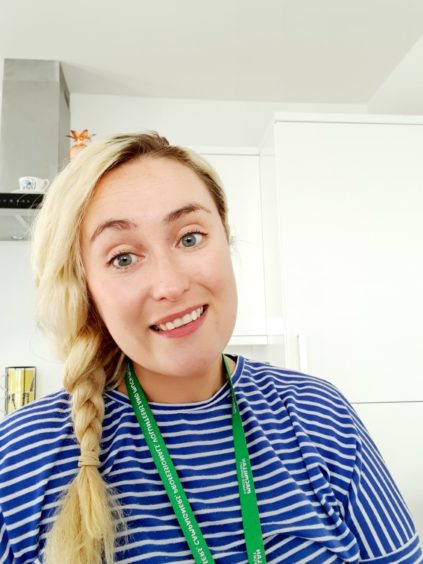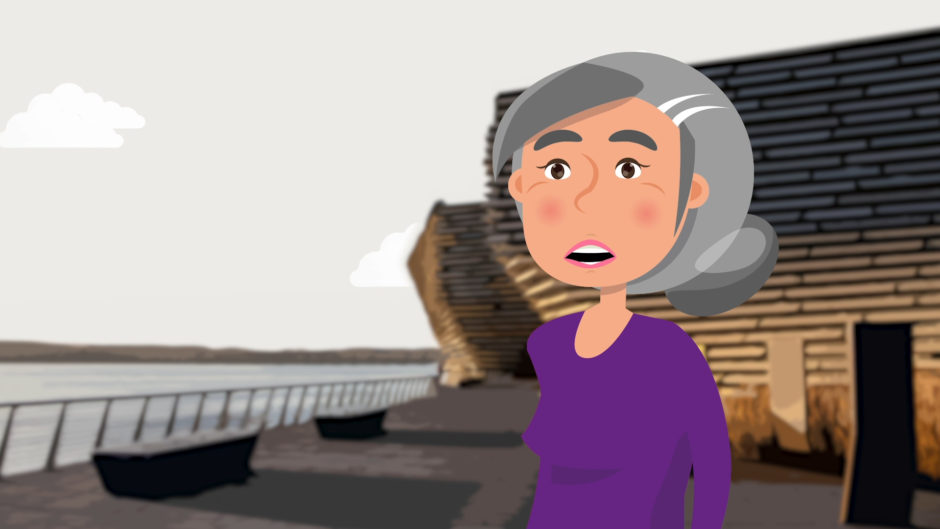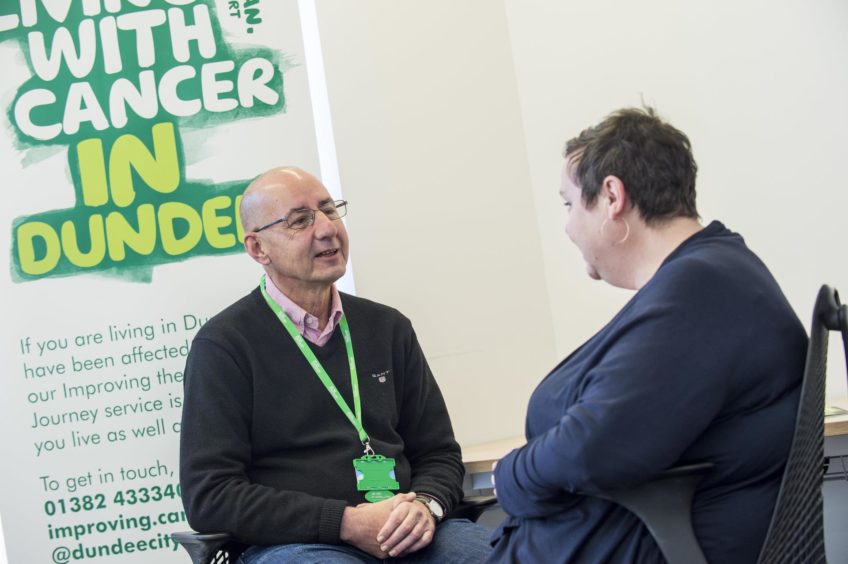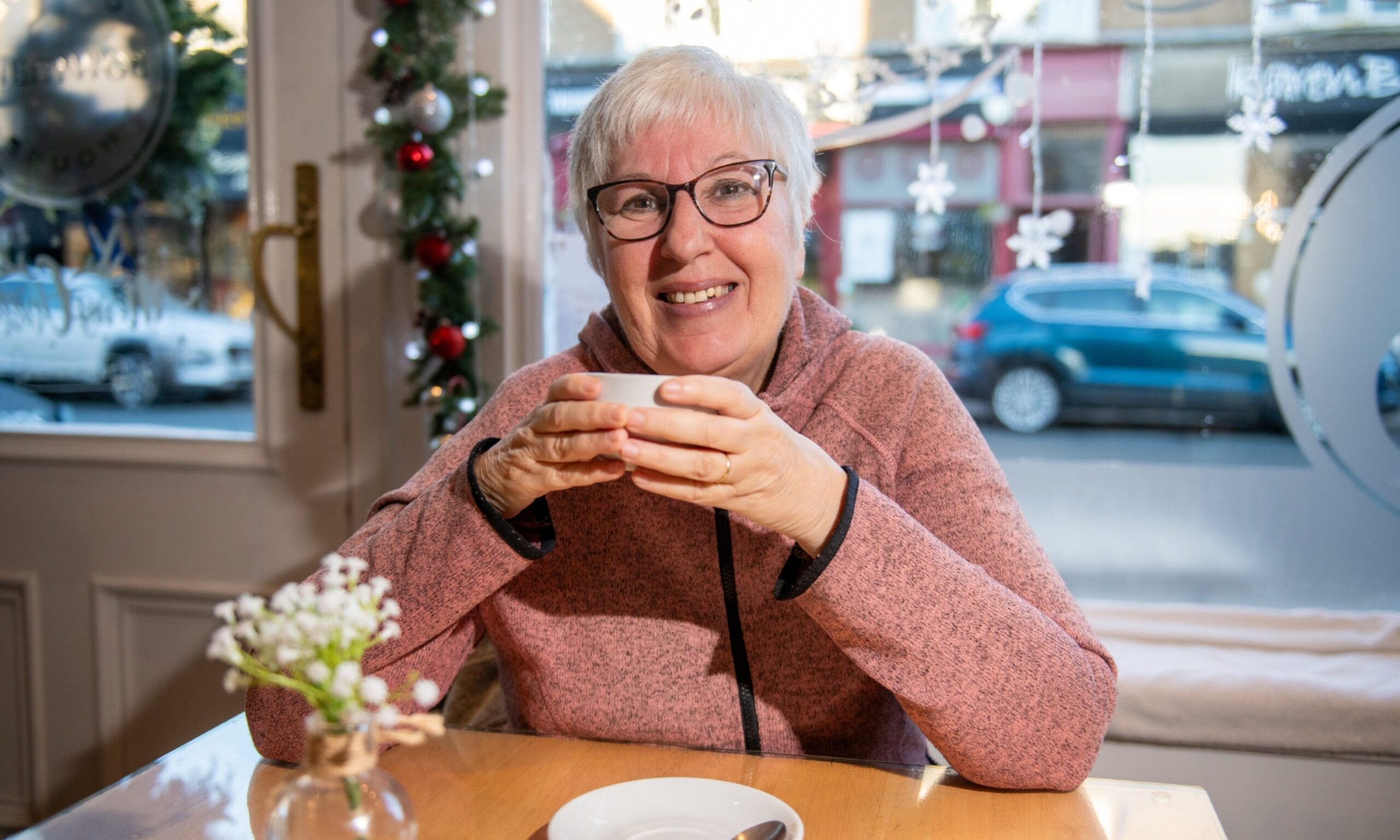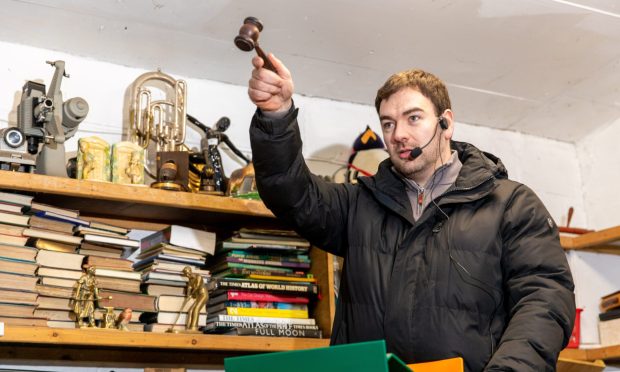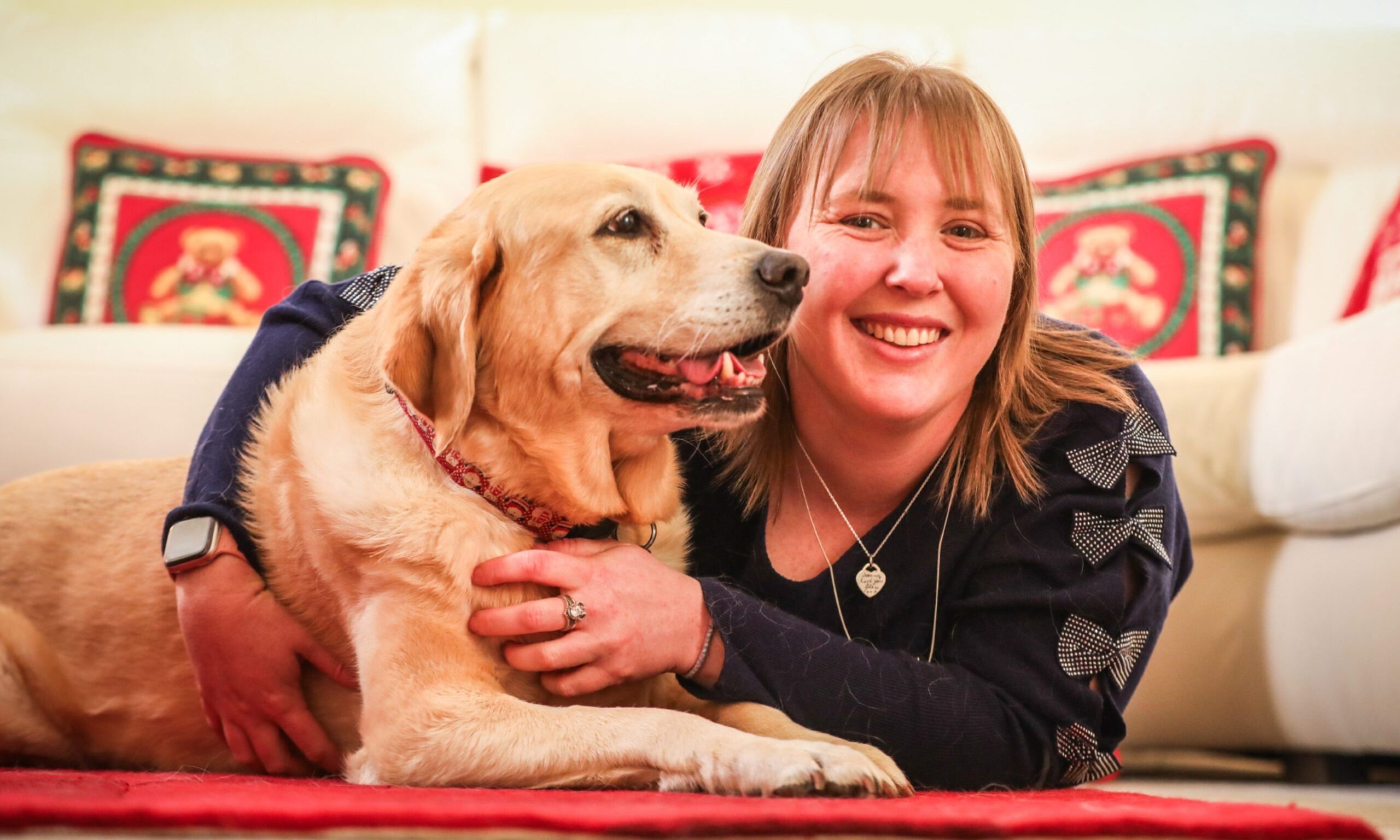In the UK one in two people will develop cancer at some point in their lives, and almost everyone knows someone who has been affected by the disease.
Dundee Macmillan Improving the Cancer Journey (ICJ) supports people affected by cancer living in Dundee.
Corrine Ewing, a Macmillan Support Facilitator with Dundee Macmillan ICJ, explains: “I have also been affected by cancer and have a passion to support others who are touched by this disease.
“My role involves supporting people to address any concerns about their diagnosis, treatment or effects of treatment.
“We use a tool called the Holistic Needs Assessment, a simple questionnaire designed to encourage conversation about a person’s concerns and needs at that time,” she explains.
“These can range from concerns around things like housing, work, income and other practical elements associated with living with cancer, as well as emotional challenges such as dealing anxiety and talking to family and friends about your illness.
“Whatever matters most to a person, we do everything we can to get them the support they need.”
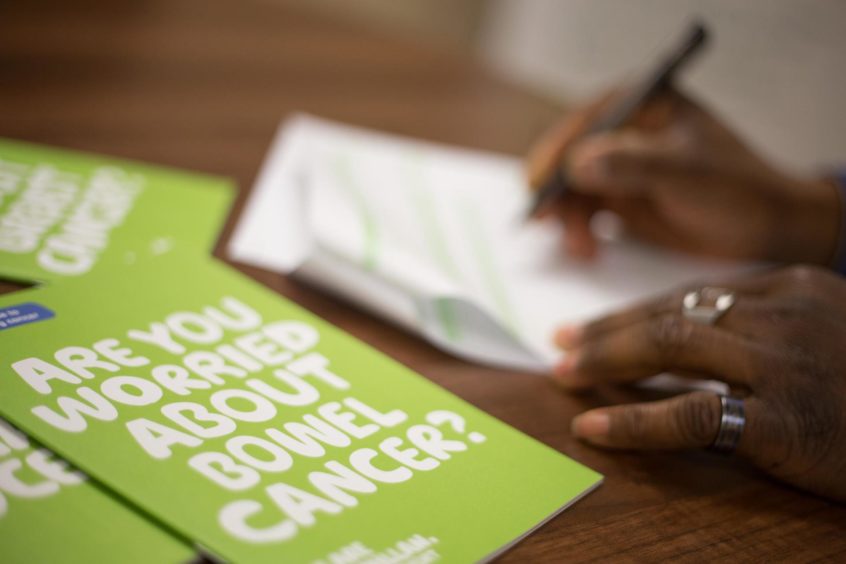
The ICJ service supports anyone over the age of 18.
“We are a person-centred service who can refer or signpost people to agencies and supports that are appropriate for them. It depends on the person’s needs and concerns. Everyone’s journey is different,” says Corrine.
“We can refer for support with money worries, getting around and any help that person might need at home. Cancer treatments can cause a number of challenging side-effects.
“Getting some help at home can make a huge difference to that person’s recovery. We can also refer to specialist support services, such as counselling and psychological supports to help people come to terms with their diagnosis.
“Sometimes just talking with someone else who understands what that person is going through can make a big difference as cancer can leave people feeling alone and isolated,” she says.
Since the Macmillan Improving Cancer Journey service in Dundee was launched in 2017, it has helped more than 1,000 people in the Dundee area, setting them up with support that makes a real difference to their lives.
“But,” says Corrine, “we know that there are still many more people out there who could benefit from our help.”
To this end, the team at Dundee ICJ have put together a moving and impactful animation, Julie’s Story, showing some of the ways they can help people, which they hope will raise awareness that the service is there for anyone affected by cancer in Dundee.”
Naturally, the coronavirus crisis has had a huge impact on people’s lives, in particular those individuals whose treatment has been delayed or stopped.
“Since the pandemic we’ve heard many cases of people having treatment, operations or screenings postponed, while others have been too anxious to attend screenings or GP appointments for potential cancer symptoms because of the fears around contracting the virus,” says Corrine.
“This has meant cancer referrals have seen a rapid decline. As many of the people we support are referred to us by medical professionals upon cancer diagnosis, we have seen a decline in referrals to the ICJ service too.
“Research by Macmillan recently revealed the scale of fear and anxiety facing tens of thousands of people with cancer in Scotland as they deal with both the threat of cancer and Covid-19. Services like the Macmillan ICJ service in Dundee are more needed than ever,” she says.
Although the coronavirus pandemic meant that support workers at ICJ services can no longer see patients face to face until it is safe to do so, they have continued to support people via telephone and virtual platforms whilst working from home.
“Everyone is now offered the option of a telephone call or face-to-face video consultation,” says Corrine.
“People are also sent – if they have an email address – a link to the Concerns Checklist. This gives the person time to really think about what is concerning them most.
“We continue to refer people to other services too, although some are reduced during these challenging times. We continue to adapt and change to meet the needs of people affected by cancer.
Corrine and the team anticipate they will become quite busy in the coming months, as screening clinics are recommencing, and people will visit GPs with symptoms again.
“Services like Macmillan ICJ services are so important right now in helping to ensure cancer does not become the ‘Forgotten C’.”
Anyone who would like to get in touch with the Macmillan Improving the Cancer Journey service in Dundee can call 01382 433340, email us on improving.cancerjourney@dundeecity.gov.uk or text YES along with your name to 07860 077337.
To watch Julie’s Story, visit thecourier.co.uk
To help support Macmillan services, sign up for World’s Biggest Coffee Morning https://coffee.macmillan.org.uk/
